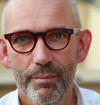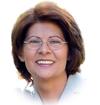Il posto della Turchia è dentro l'Unione europea?
Un paese in forte crescita economica, che amplia la propria influenza su Balcani, Medio Oriente, nord Africa. Ma anche un paese dove partecipazione democratica, libertà di stampa, distribuzione della nuova ricchezza restano questioni aperte, come dimostrato dalle proteste che l'hanno recentemente incendiata. Candidata alla membership nell'UE dal 1999 la Turchia, quasi 80 milioni di abitanti in larghissima parte musulmani, resta per ora alla finestra, stretta tra fatica di allargamento, esplicito scetticismo di alcuni paesi leader in UE e tentazione di cercare nuovi orizzonti. Ma il posto della Turchia è dentro l'Unione europea?
Does Turkey belong in the European Union?
The Turkish economy is growing, together with the country's influence in the Balkans, Northern Africa and the Middle East. The recent protests, however, are highlighting issues which in Turkish society remain unresolved: the level of democracy, the freedom of the press and the distribution of wealth. An EU candidate since 1999, Turkey is still waiting. Enlargement fatigue, the scepticism of some EU countries, and fear of its 80 million of inhabitants, the vast majority Muslims, are keeping her on the waiting line. But does Turkey really belong in the European Union?
Block: Poll OBC
Parliamoci chiaro: questo non è il momento migliore per parlare dell’ingresso della Turchia nell'Unione europea. Abbiamo appena visto la brutalità poliziesca manifestarsi a più riprese a Istanbul e in altre città turche, dopo che l'occupazione di un piccolo parco nel centro di Istanbul è andata fuori controllo... (Leggi la conclusione di Joost Lagendijk )
Let’s face it: This is not the best time to discuss Turkey’s membership of the EU. We have just witnessed several rounds of police brutality in Istanbul and other Turkish cities after the occupation of a small park in central Istanbul got totally out of hand... (Joost Lagendijk's conclusion )
Molti commentatori hanno fatto riferimento agli eventi in corso in Turchia e hanno interpretato le manifestazioni come segno di una vibrante gioventù che ha assimilato i valori della democrazia e della libertà di espressione... (Leggi la conclusione di Renate Sommer)
Many commentators refer to the current events in Turkey and interpret the manifestations as a sign of a vibrant youth that has internalized the values of democracy and freedom of expression... (Renate Sommer's conclusion)
Block: Commenti disqus
The project "Tell Europe to Europe" is funded by the European Union








 To Top
To Top